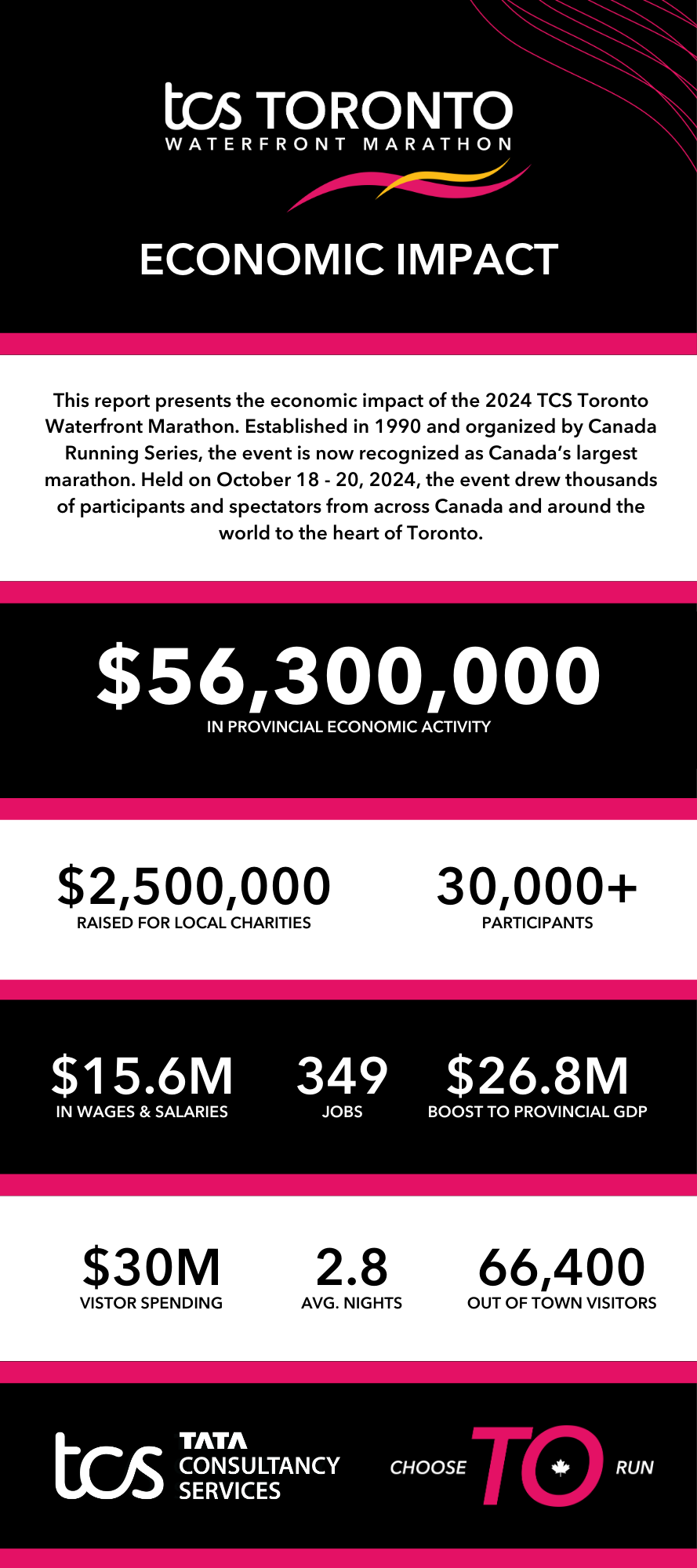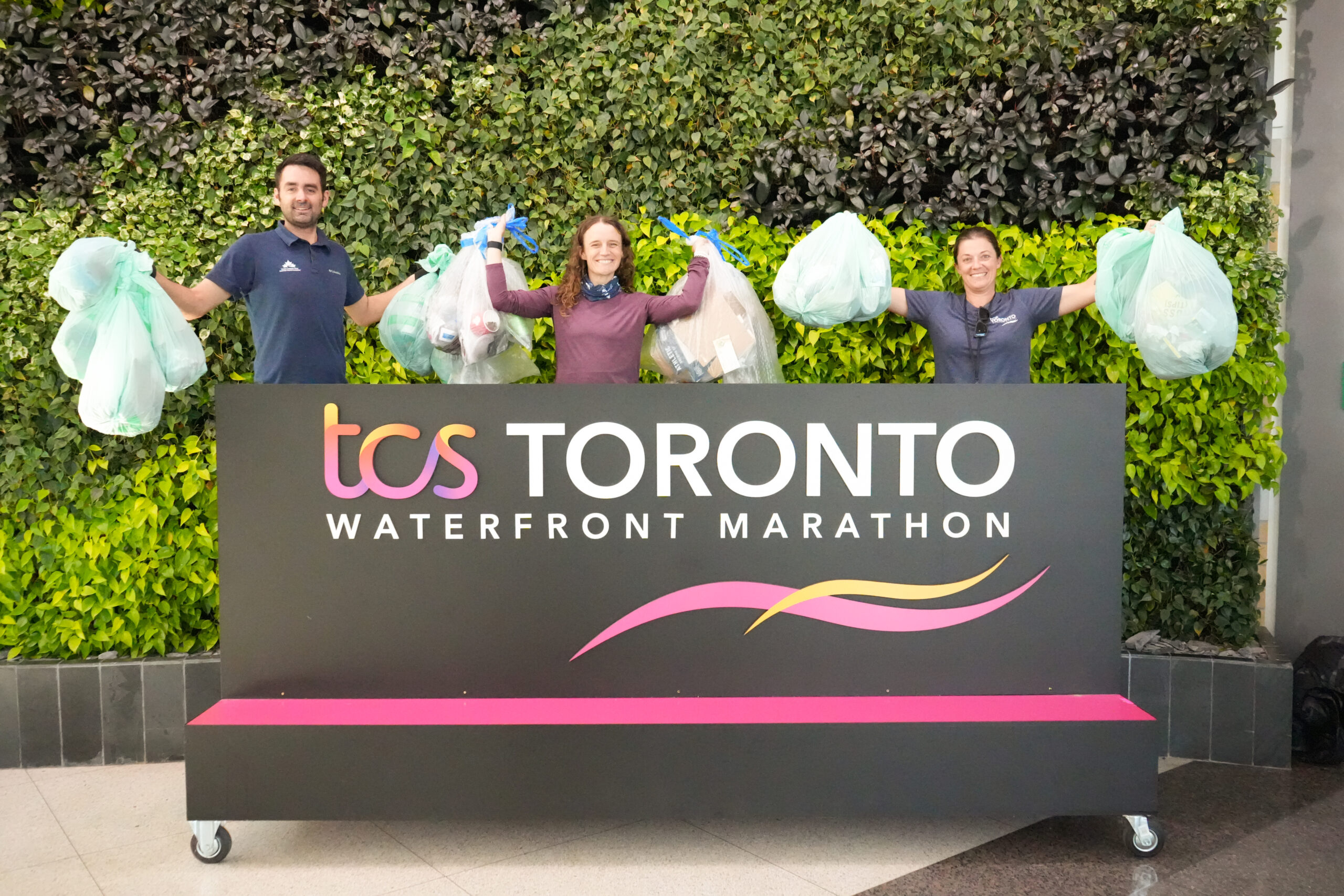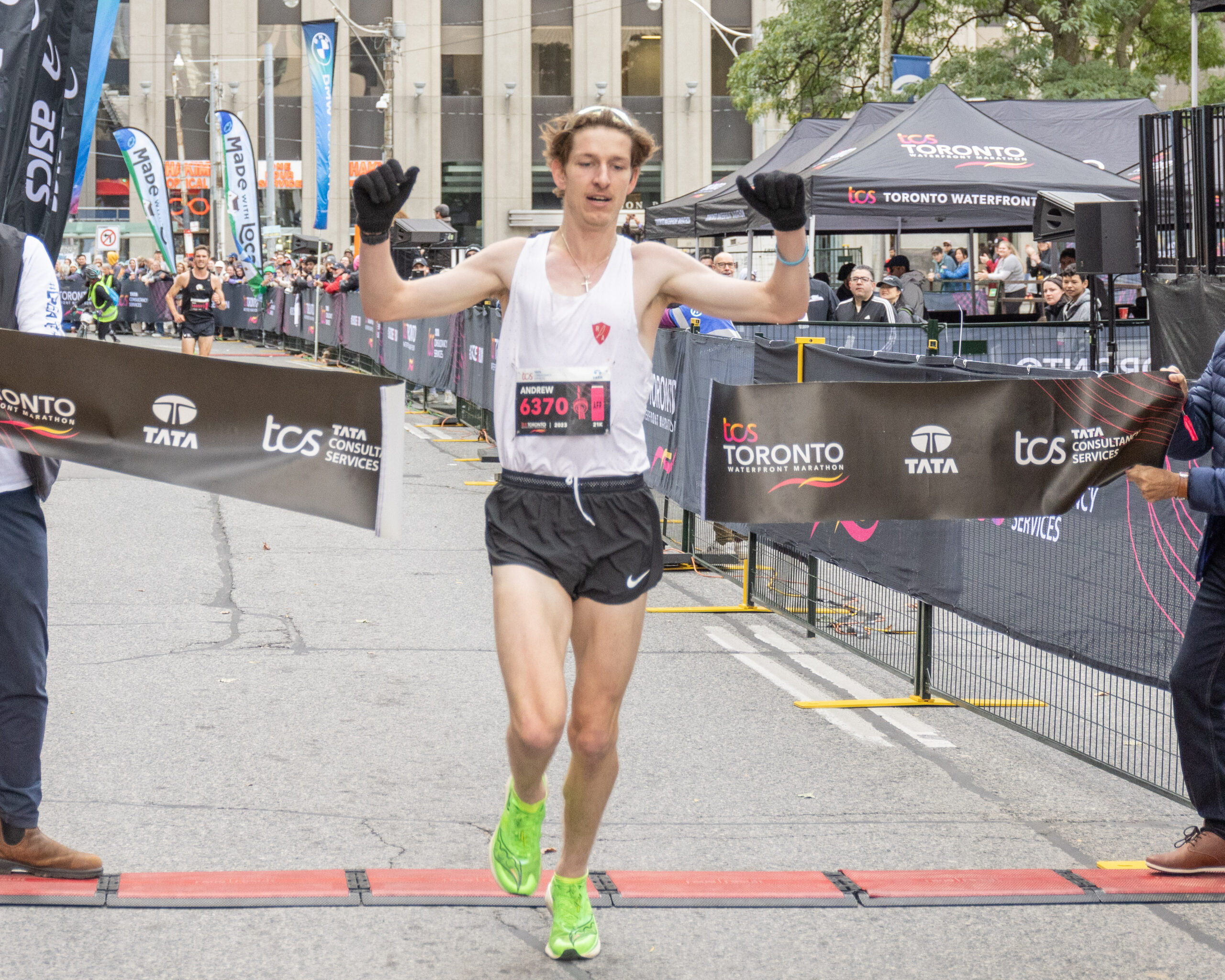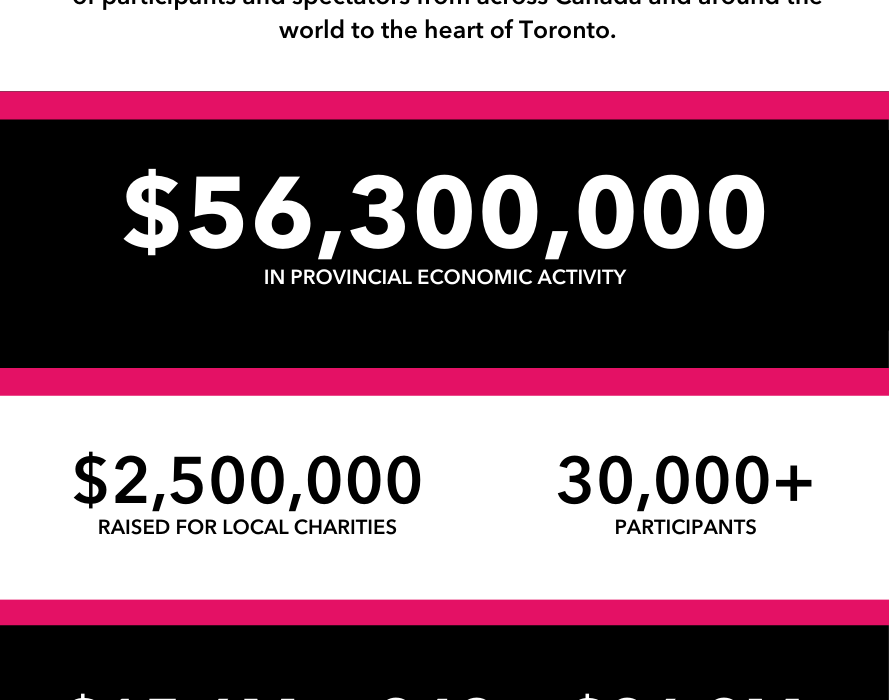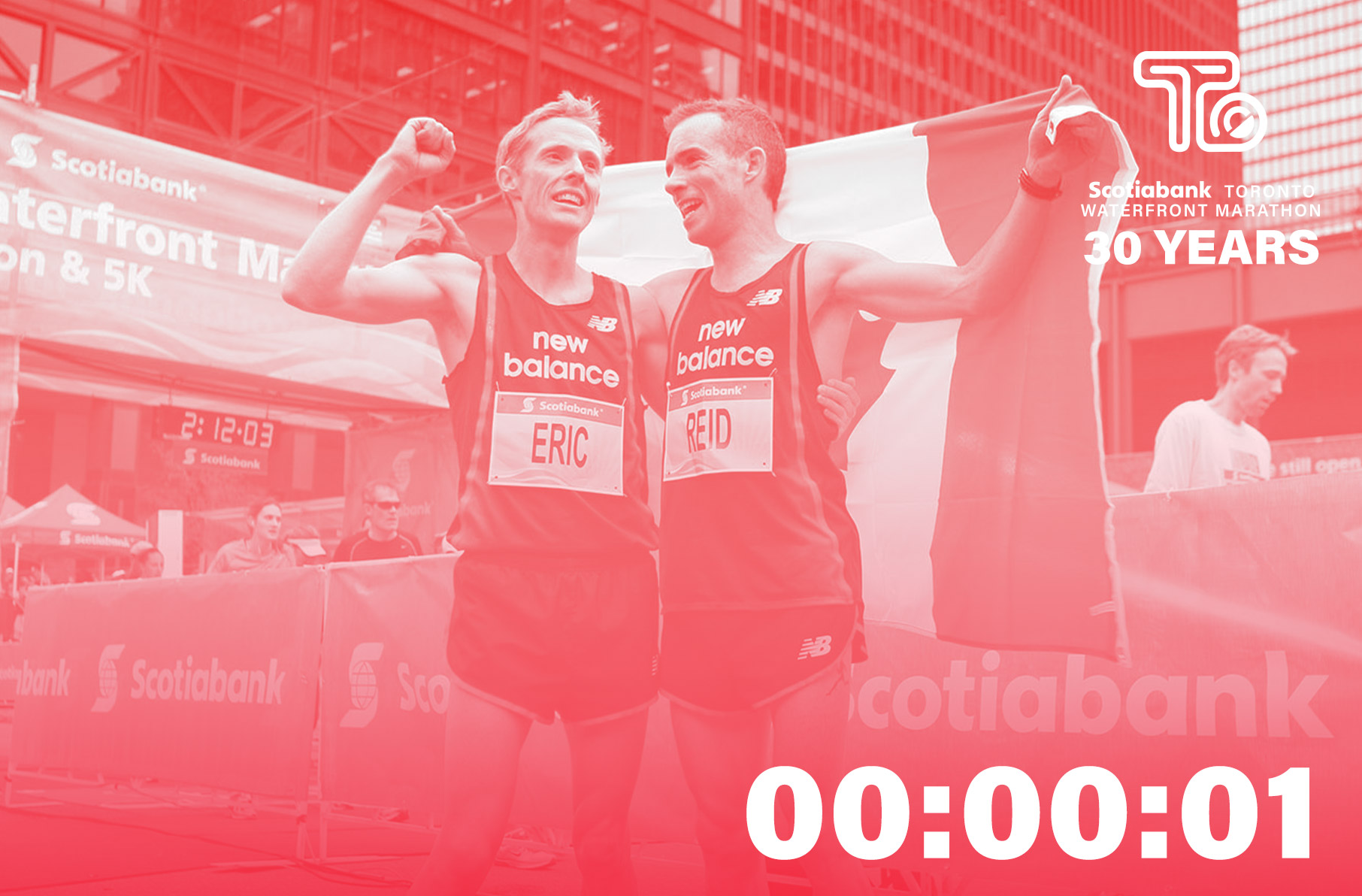
By Ravi Singh
For someone so understated in his demeanour and approach to training, Eric Gillis is good at causing commotion. There was of course his top 10 finish in the marathon at the 2016 Rio Olympics, Canada’s best result at that event in decades.
In 2011, as he approached the finish line of the Scotiabank Toronto Waterfront Marathon, Gillis could hear the crowd counting down in unison as he threw down his final kick. From his office, the now head coach of St. FX Cross Country recalls, “The announcer started the countdown. I thought it was interesting that the crowd was counting me down and that they were pretty much going to be bang on. I didn’t realize right away that they weren’t just counting me down, but the Olympic Standard in general.”
When he crossed the finish line, Eric kept his cool and didn’t rush to celebrate. “I crossed and everyone cheered, but I saw the time and knew that I was one second under. In road racing, the time averages up.” He needed to be under 2:11:28.5 in order to meet the standard of 2:11:29.
Eric could finally breathe when the official time came down as 2:11:27.2, which would take him to London in 2012, the payoff of a quiet grit that’s defined Gillis’ career.
Passion
Gillis has run the Scotiabank Toronto Waterfront Marathon five times. Though he hails from Nova Scotia and trained out of Guelph during his collegiate career, he fondly calls Toronto his hometown race—the event where he always knew the most people, found his biggest support, and felt like he as part of something special.
Toronto also offers the opportunity for the elites and non-elites to cross paths on the course through the out and back portion along the city’s Lakeshore. Gillis says, “I’ve heard my name being called and I draw from that energy. It was great to be part of other people’s experience as well. I’ve heard people say that they want to finish the half before I finish the full and I love being part of someone else’s achievement. It helps put some perspective on it and reminds you that it’s supposed to be fun as well.”
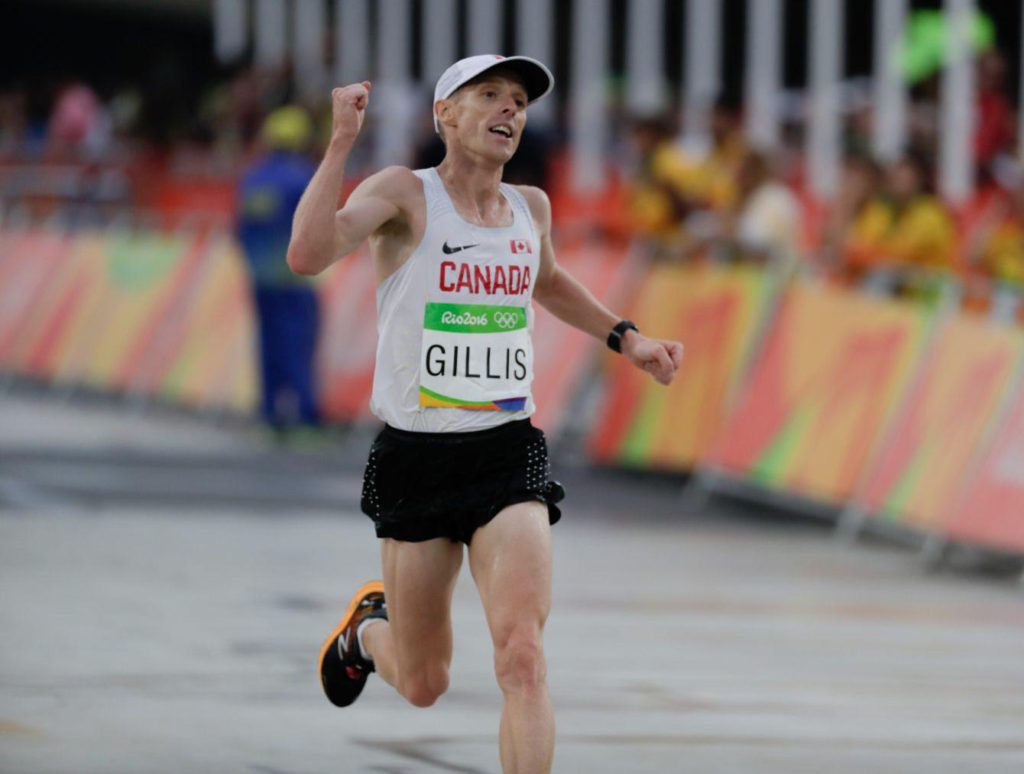
Eric Gillis finishing 10th overall at the 2016 Rio Olympic Games.
Courage
London 2012 would be Eric’s second trip to the Olympics, having represented Canada in the 10,000m event at the 2008 Beijing Games. “If I wanted to stick with running long-term,” Eric explains, “I needed to move to the marathon.” The 10,000m didn’t offer enough opportunity to compete and had less cache than the marathon.
With two marathons under his belt, Eric was about 40 seconds off the Olympic standard and thought that with a stronger build than he had for his previous marathon, where he was dogged by knee issues, would get him there. Nonetheless, “Knowing that I could run 2:12.08 gave me the confidence to go into the following year’s race with more control.”
Follow Through
Taking the leap not just from the track to the marathon, but to the Olympic standard, didn’t feel as daunting as it perhaps should have. According to Eric, “I didn’t have to really do anything differently, just do it more efficiently and with more confidence this time around.”
Training out of Guelph at the time with Reid Coolsaet, Eric recalls, “I really enjoyed my build up because I trained with Reid, and I was able to track where I’d been compared to the previous year.”
“You have to have mental toughness, but you also have to be able to forget things and let it go.”
The training didn’t feel like an all-out assault on his mind or body. The consistency of his performances, and his ability to dig deep, reveal a mental toughness that eludes many. “It’s about situational aggressiveness,” Eric explains. “You have to have mental toughness, but you also have to be able to forget things and let it go.” That’s how Eric saw the progression, evaluating outcomes as he went and relying on the support system around him.
“I take my time when I’m serious about something.”
His whole career had been a year-to-year evaluation of whether or not he wanted to continue competing, so the same model applied to training. Manage the day to day and follow through as necessary.
“I take my time when I’m serious about something,” Eric says, “which was easy to do in Guelph because I didn’t have to get caught up in the goals. I could just look forward to training with guys who were as good, better than, or even behind me.”
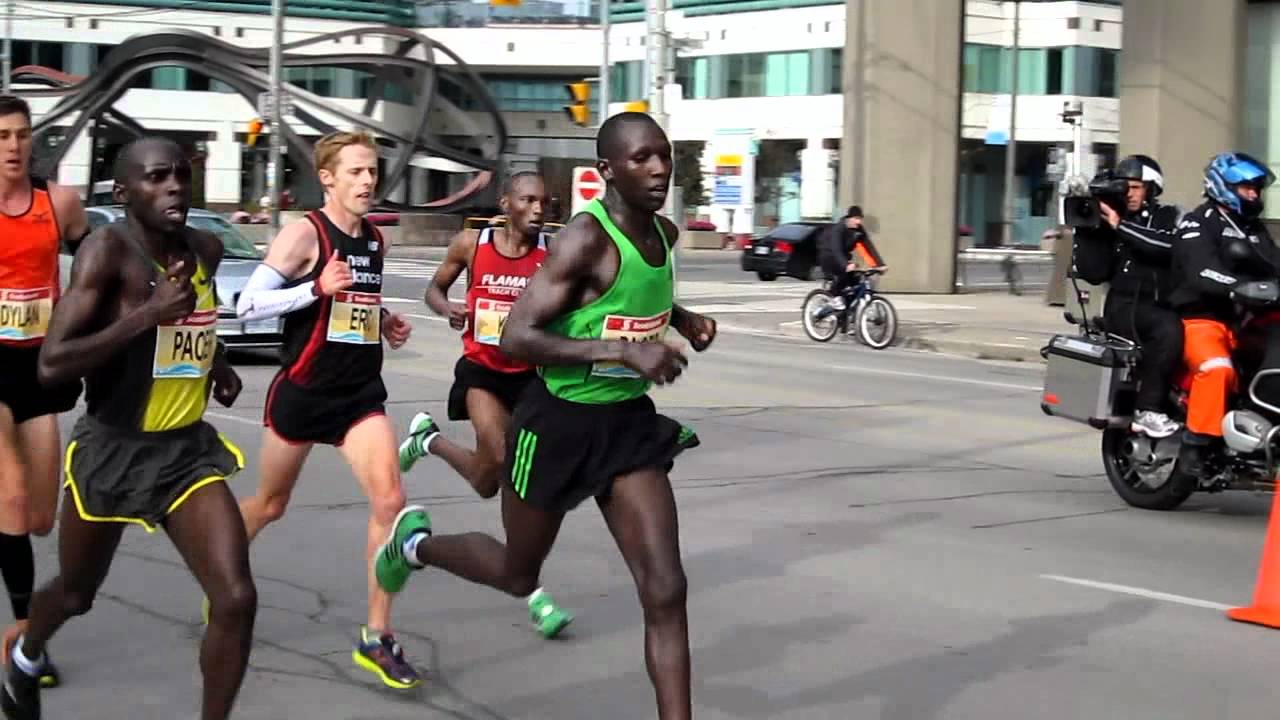
Gillis racing the 2011 Scotiabank Toronto Waterfront Marathon
Resilience
When race day arrived, “Everything said I was capable on a nice day. Even if if was a little windy, I could still fight through and have a bit of a cushion.”
Reid Coolsaet already had the standard, so he would race all out and land himself a podium finish at 2:10:54.
“At 32K, we turned into the wind and I had some time under me. I checked the splits and liked what I saw.” At 33K, Eric noticed a slightly slower split and “I decided that the math wasn’t going to help, so I just went all out and raced it.”
By 41K, Gillis knew it was going to be within 5 or 10 seconds, “So I knew I that I’d have to go all out so that I’d have no regrets. Even if I was a second over, I wanted to know that I gave it everything.”
The urge to do math, however, still lingered. “There were 300m left and I had about a minute to break that. That’s something I’d done regularly on the track, so I finally went for it.”
With the finish in sight, the announcer started counting down.
Excellence
“Toronto in 2011 was definitely a career highlight at that point, Rio being number one overall and London 2012 maybe number two for the experience if not the performance,” is Eric’s assessment.
For all the sterling achievements, nailing the Olympic Standard included, the foundation was a desire to run. “When I was in Guelph I knew that I wanted to be a professional athlete and I never wanted to sacrifice a future performance for one day. Even Rio was just one day and the process to get there wasn’t for that one day–I did it for all the days before that.”


